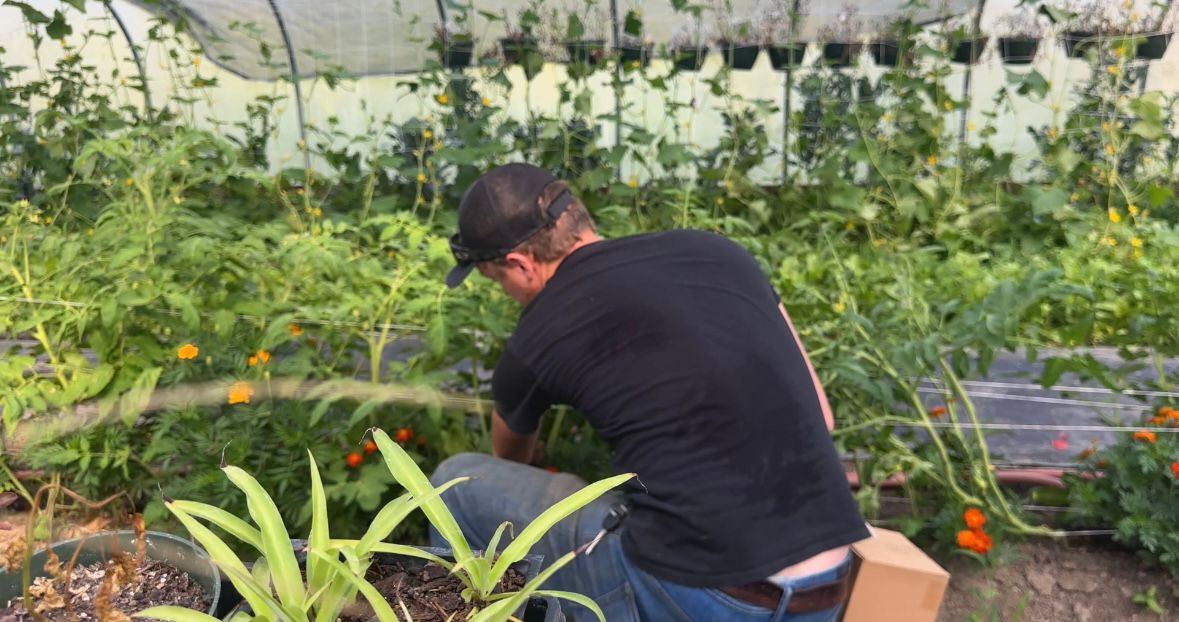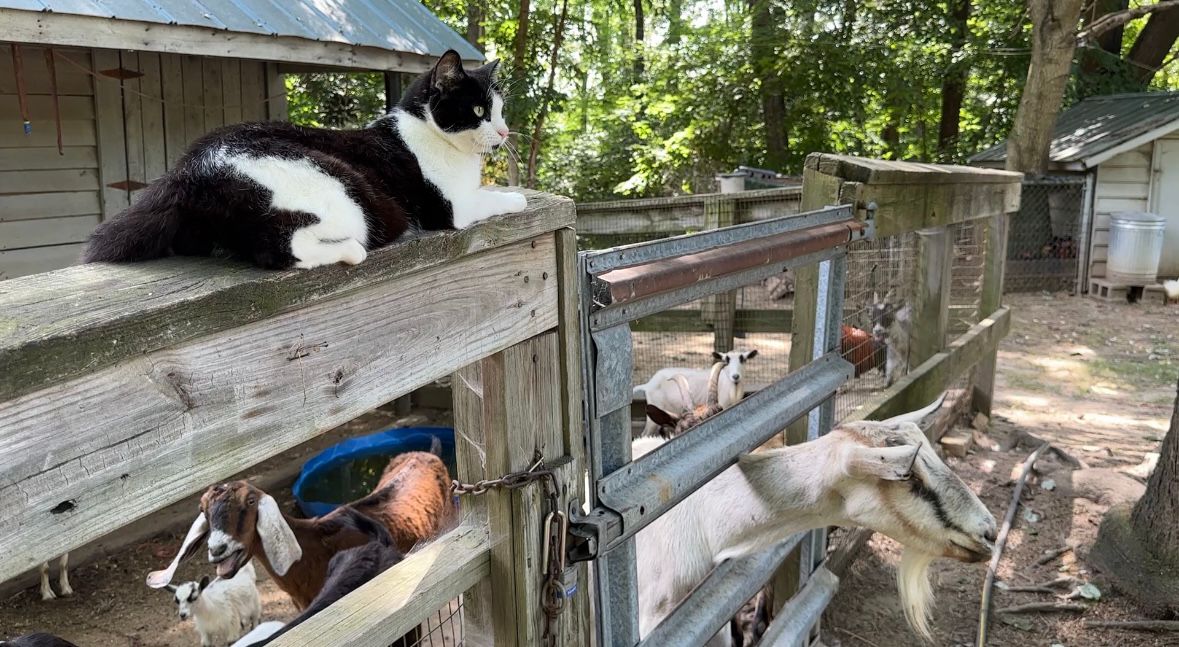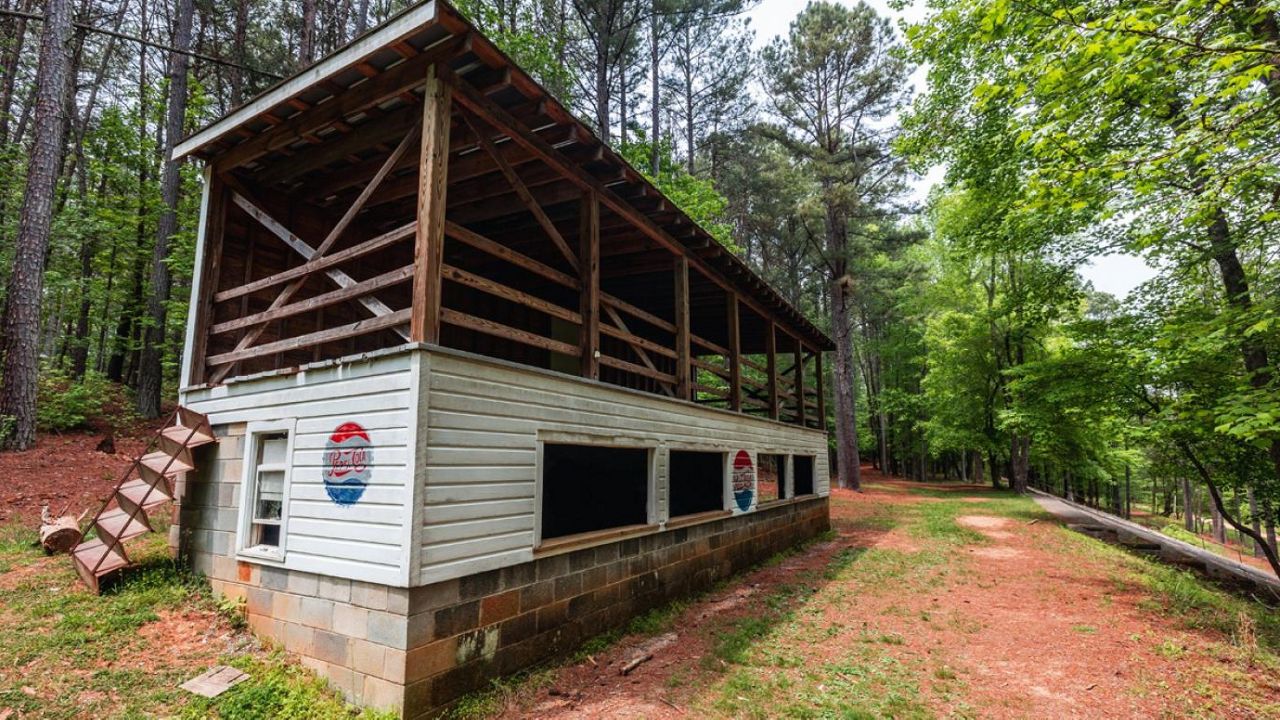THOMASVILLE, N.C. — Hot temperatures are forcing farmers to change their production, which could affect what food is brought to your table.
What You Need To Know
- Areas of the Triad are abnormally dry, some behind by 1.84 inches of rain for June
- Hot temperatures are raising labor and infrastructure prices for farmers
- The heat could change what produce is at your local market
- The fifth annual Davidson County Farm Tour takes place this weekend
Zachary Rierson, the owner and operator of Rierson Farms NC in Thomasville, never thought farming would be his profession. After meeting his wife and getting goats, he began seeing the world in a different way.
“We went to the local farmers market, and from there we started realizing how much or how little food there was really at our farmers markets … we realized how much food insecurity we had in our community," he said. "And we just wanted to make a small part in it. It’s really become a big part for us.”

The farm's products include vegetable and flower transplants and goat milk soaps. But it all has come with growing pains.
“Sustainable farming requires a lot of infrastructure up front, and we don't really have a lot of the capital upfront to do it," Rierson said. "You just kind of have to ease into it."
Growth such as years of building soil health is being put at risk due to high heat and little rain in the area. Labor requirements increase because of the need to water crops multiple times a day and buy new infrastructure to combat the heat, creating greater costs for farmers.
“A lot of it has really been in labor. We have a lot of not just being a vegetable grower, but we have a lot of transplants and herbs ... and a lot of the time and money spent here is with our farmhands watering things, fixing irrigation issues,” Rierson said.
Changing what seasonal crops are grown on the farm and using creative methods like planting in the shade are intended to help boost production.
“We planted our winter squash earlier in the year, so we have a lot of stuff that typically we plant in the fall that we did earlier in the spring,” Rierson said.
Other production such as cover crops and animal feed are also dwindling.
“We as farmers rely a lot on that three-, four-week stretch of freezing and subfreezing temperatures to kill off a lot of the larva and eggs that produce a lot of the pests that we see this time of year and without that freeze, I know with our animals at the barn, all of our crops are seeing pest issues and certain pests that I've honestly never seen before,” Rierson said.
It will possibly raise prices of the food on your table.
“I don't think there should ever be a time that people don't feel like they're entitled to fresh, certified, naturally grown or organic food," he said. "But unfortunately, we do have to charge $4 and $5 for a bag of lettuce now because there's so much time involved, both with the pest prevention, our seed cost is going up,” Rierson said.
He says climate change is pushing many farmers to close their business.

“Unfortunately, there's a lot of small farms that have been closing ... we've seen six in the last year. I saw one big one the other day, unfortunately," he said. "As farmers are pivoting, especially these more tenured farmers that haven't been blessed with the network that we've had, with sustainable ag."
He also says to expect local produce to not look as picture perfect at the grocery store due to the weather.
“It's a lot more nutrient dense, but sometimes it's not going to be as pretty, especially with the pest issues and the watering issues we see,” Rierson said.
He encourages those struggling to afford fresh food to look into local farmers market SNAP EBT benefits like at the Thomasville Farmers Market that runs from May to September, according to its website.
Rierson Farms is participating in the fifth annual Davidson County Farm Tour this weekend, with over a dozen farmers.
The tour will highlight meat, produce and even Angora wool farmers. Car pass ticket prices will go toward classes to provide better education for farmers to deliver better products.










